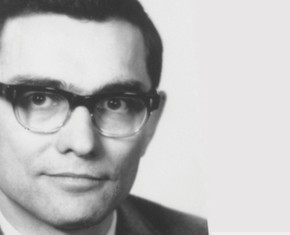The views expressed in our content reflect individual perspectives and do not represent the authoritative views of the Baha'i Faith.
Do Baha’is all have similar ideas and opinions?
When you first investigate the Baha’i Faith, by going to Baha’i introductory meetings, taking courses on its history and principles, reading news articles about its activities, or perusing websites like BahaiTeachings.org, you might initially feel inclined to answer yes to that question.
After all, the Baha’i Faith—a global religion with believers from just about every culture and background imaginable—has no sects, denominations or schisms. It is one unified belief system, no matter where you go in the world, which means that Baha’i communities in India, Indiana and an Indian reservation have more spiritual commonality than differentiation. A single set of principles, directly from Baha’u’llah and Abdu’l-Baha, serves as the guiding light of Baha’i belief. A democratically-elected body—the nine-member Universal House of Justice—exists to answer, mediate and resolve questions among the Baha’is. From that perspective, it seems like Baha’is must all share their thoughts, views and perspectives pretty closely.
But they don’t. Baha’is have a wide range of views—because they don’t have the same experiences, cultures, backgrounds or educations, they don’t only have one opinion.
In fact, that’s the classic definition of a fundamentalist cult: a highly manipulative group that tightly controls its members’ views, thoughts and opinions, usually with a charismatic leader who insists on a rigid orthodoxy enforced by a loss of personal identity.
So by definition, the Baha’i Faith is actually the exact opposite of a cult: a broadly diverse global group of people, without any clergy or dominant charismatic leadership, which actually encourages the independent investigation of truth and the holding of diverse views and opinions.
Normally, you would expect such a Faith to have splintered into a whole host of sects and schisms by now, almost two hundred years into its existence—but that has not happened. The religion that teaches unity has actually remained unified. Why?

Seat of the Universal House of Justice
The Baha’i Faith—worldwide in nature, divergent in reality, extremely varied in membership—offers humanity a single set of global principles. First promulgated by Baha’u’llah, the prophet and founder of the Faith; expanded upon by his son and the Baha’i exemplar Abdu’l-Baha; interpreted and explained by the Guardian of the Baha’i Faith Shoghi Effendi; and then protected and promoted by the democratically-elected Universal House of Justice; those principles have remained as a single unitary set of teachings for almost two centuries.
The Baha’i Covenant, which prescribes that orderly and sequential process of the transfer of authority, has successfully allowed the Baha’is to stay in one fold and one Faith.
Although attempts have been made, in a few instances, by small groups of people to break away from the main body of Baha’i belief, all sectarian schisms have failed. That means, for the first time in human history, a worldwide religion has successfully managed to maintain its original coherence, unity and wholeness, not just through its first century but well into its second.
If you study the annals of previous world Faiths, you’ll find such ongoing, sustained unity highly unusual.
Many religions, if not most, rapidly divide into different competing denominations, schisms and sects after the deaths of their founders. Christian unity, for example, initially splintered during the 1st Century A.D. Later, Catholicism and the Eastern Orthodox Church famously split Christians into two factions during the Great Schism; and then Protestantism rapidly accelerated the process. Today most religious historians recognize six major branches of Christianity: Catholics, Protestants, Eastern Orthodox churches, Anglicans, Oriental Orthodox churches, and the Assyrian Church of the East. Together, those six branches have further split into approximately 41,000 Christian sects and denominations in the world today, according to the Center for the Study of Global Christianity.
In Islam, Sunni and Shia denominations formed almost as soon as Muhammad passed away, and today many different sects exist in Islam, despite Muhammad’s injunction in the Qur’an: “…be not divided among yourselves.” In Hinduism and Buddhism, so many sects and beliefs exist that the original messages of Krishna and Buddha aren’t always recognizable in all of them. Judaism, generally seen as represented by three very different denominations—Orthodox, Conservative and Reform—actually has many sub-denominations in each of those categories. No major world religion except the Baha’i Faith has remained as one religion.
Which raises tough questions: how can a global Faith stay unified? Since people come from different cultures, contexts and civilizations, and inevitably have vastly differing opinions and views, what common perspective or set of laws and principles can possibly hold them together? In a world where religion often means warring ideologies and sectarian struggle, why has the Baha’i Faith succeeded in protecting its unity?
In this short series of essays, we’ll explore those important subjects, and find out how the Baha’is, among the pantheon of all the world’s religions, have kept their unity intact.
















Comments
Sign in or create an account
Continue with Googleor